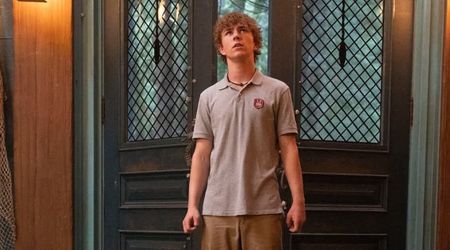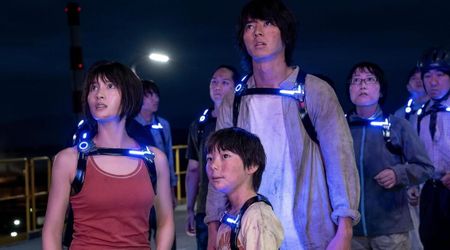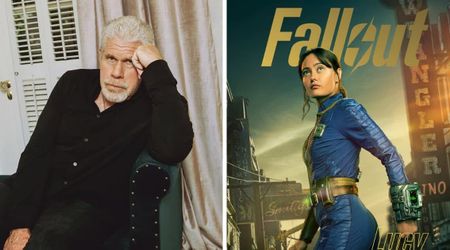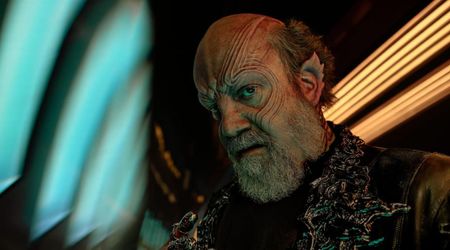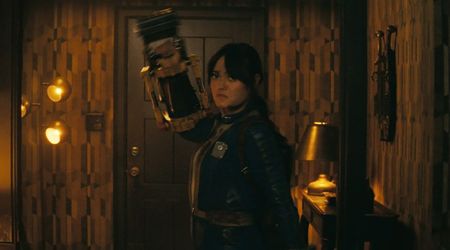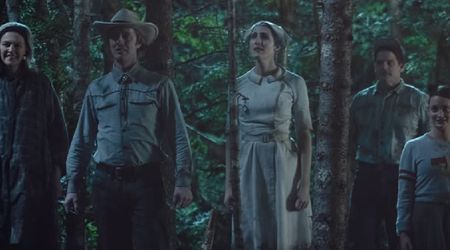'No Man's Land' Review: Hulu series is tiresome repetition of using Middle East as background for White stories

Spoilers for 'No Man's Land' on Hulu
When you read the synopsis for 'No Man's Land', the story seems quite clear. 'No Man's Land' dives "into the depths of the Syrian civil war through the eyes of Antoine Habert (Félix Moati), a young French man, in search of his estranged, presumed to-be-dead sister. While unraveling the mystery, piece by piece, Antoine ends up joining forces with a unit of Kurdish female fighters, fierce women, and ISIS' biggest nightmare and travels with them in ISIS-occupied territory". The Hulu series is also about three British men, Nasser (James Krishna Floyd), Iyad (Jo Ben Ayed), and Paul (Dean Ridge), who reach Syria because they want to join ISIS.
However, the primary inspiration for the series is the YPG or the Women's Protection Units, an all-female Kurdish militia group that is best known for fighting against ISIS forces in Syria and continues to do so. As part of YPG, we meet Sarya Dogan (Souheila Yacoub), who eventually grows closer to Antoine as he joins them to find his sister, Anna (Mélanie Thierry). The concept of YPG in itself is exciting to expect — but that is all the excitement there is. When one actually watches 'No Man's Land', you end up realizing that it is just another Western orientalist story that just uses the Middle East and its conflict for telling stories of White people. While the Syrian Civil War is mentioned in the very first sentence of the description of the series, there is very little focus on the people who are actually affected by the conflict in the Bashar al-Assad regime — and this is only the beginning of the disappointment.
The series is created and written by Amit Cohen ('Valley of Tears', 'Allegiance') and Ron Lesham ('Valley of Tears', 'Euphoria') — and perhaps therein itself the problem lies. Both Lesham and Cohen are Israelis and by virtue of their nationalities, they are forbidden from entering Syria. Rather, the writers focused on talking to those in Syria — so what is presented is as much a secondhand account. In fact, Cohen's statement to TV Insider reaffirms that 'No Man's Land' is not about Syria at all, but is only used by the writers for their central European characters. "Though we hope people are inspired to learn more about the region," says Cohen, "our show is not really about the civil war, but an emotional story of very relatable characters".

Perhaps, Cohen and Lesham tried to depict why there are so many Europeans (especially British folk) who seem to be inspired by the teachings of ISIS. Here's where Nasser, Iyad, and Paul's stories come in. Again, there is more telling than showing here — we don't really understand why these characters are motivated to become jihadis. Even Paul, a White Brit becomes radicalized just because he was surrounded by brown Muslim men, and we don't really know why that is. When the jihadis are shown in the series, the show makes it clear to tell us that these are the bad guys as they recite "Allahu Akbar" (Arabic for "God is Great" and mistaken to be a call for war by most White folks).
The show's lack of understanding of the conflicts in the Middle East is exactly why it fails. Like most American shows and movies that are often set in the Middle East, the locals are merely props to facilitate the westerner's story and understanding — and nothing more. Even Sarya, the one Middle Eastern character has a European background and therefore is presented in a way that would be considered acceptable for western audiences who are not interested in anything beyond their perspective.
It is high time that entertainment stops with the orientalist form of storytelling — the kind of storytelling that focuses on the Middle East, Asia, and Africa, in an exoticized way that is catered to Western beliefs, a term coined by the late Palestinian-American philosopher, Edward Said. 'No Man's Land' had such great potential, if only it had stuck more closely to the actual people and events that inspired it.
All eight episodes of 'No Man's Land' is available to stream on Hulu on Wednesday, November 18.

